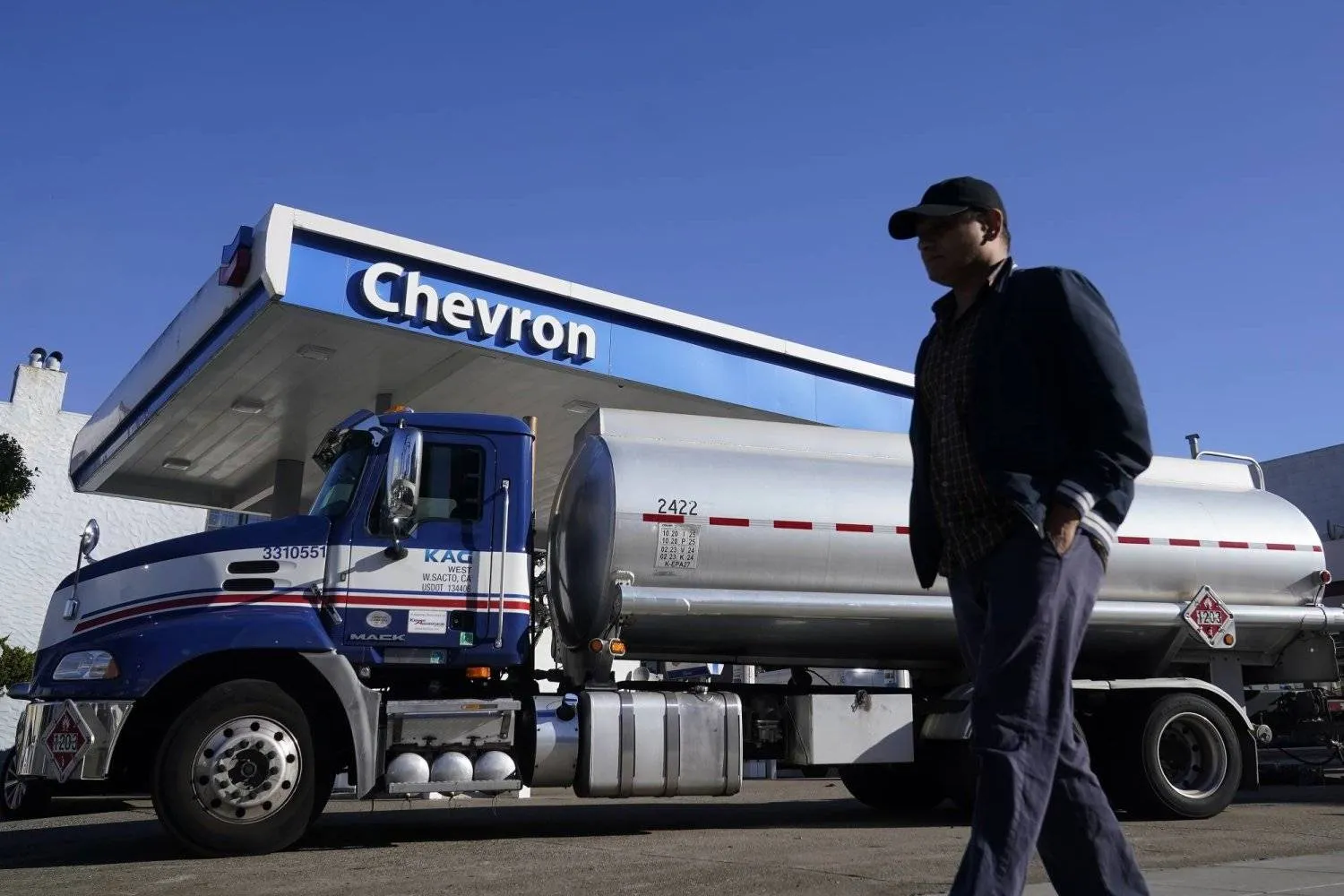Chevron Corp on Friday posted sharply weaker second-quarter earnings and the oil major's CEO discounted the chance to close a $53 billion acquisition of Hess Corp before mid-2025, sending shares down 3%.
Shares were off 9% since Wednesday following company statements saying a Hess deal closing could well be pushed back by another year, if not blocked entirely.
Chevron is counting on the Hess acquisition to establish a foothold in Guyana, home to the largest oil discovery in nearly two decades. It also hopes the deal will mitigate risks associated with the company's performance-challenged oil projects in Australia and Kazakhstan, where operational issues again hit production, pushing maintenance work into the third quarter.
The company had warned oil output this quarter would slip along with refining margins, but investors were surprised at the magnitude of the declines.
Quarterly earnings fell 19% to $2.55 per share, well below a year ago and 38 cents below Wall Street's consensus estimate, Reuters reported.
"This quarter was a little light due to some operational and other discrete items that impacted results," CEO Michael Wirth told analysts.
The company's plan to enter Guyana's lucrative offshore oil fields was shaken by a challenge from Exxon Mobil. A slow arbitration process looks to drag the deal closing well into 2025.
Asked by analysts about the prospect of a compromise with Exxon, CEO Wirth said the idea would be "sensible" and that Chevron had pursued it, without success. "It doesn't appear that is how this is going to end up," he said.
Exxon claims its joint operating agreement with Hess and China's CNOOC Ltd gives it the right of first refusal to Hess' Guyana properties.
Chevron reported earnings fell sharply to $4.4 billion, or $2.43 per share, in the quarter, from $6 billion a year before.
It reported adjusted earnings of $4.7 billion, or $2.55 per share, down from $5.8 billion, or $3.08 per share, a year ago. In contrast, Exxon beat Wall Street estimates on strong oil production in US shale and Guyana's oil field.
Chevron's earnings from pumping oil and gas fell 9.4% on weakness outside the US Earnings from fuels and chemical operations tumbled about 60%. Refining suffered from weak margins that also hit rivals Exxon and Shell.
Oil refiners overall made less money selling gasoline in the second quarter, as demand softened after production had soared earlier this year. Companies had two years of stellar profits after ramping up production in the travel boom after COVID-19 shut-ins dissipated.
"Despite recent operational downtime and softer margins, we remain poised to deliver significant long-term earnings and cash flow growth," CEO Wirth said.
HESS DEAL DELAY
On Wednesday, Chevron said an arbitration panel that will evaluate Exxon's challenge to its Hess acquisition should have a decision between June and August 2025. Exxon's Chief Financial Officer Kathryn Mikells told Reuters she expects a hearing in late May and a decision on the dispute by September 2025.
Until earlier this week, Chevron expected to close the deal by the end of the year.
CALIFORNIA
Chevron said it would relocate its headquarters to Texas from California, continuing an exodus of oil companies from the state due to higher taxes, stricter climate regulations and depleting oil fields.
Chevron expects all corporate functions to migrate to Houston over the next five years. Positions in support of its California operations, which includes oil fields and two refineries, will remain in San Ramon.
Chevron CEO Wirth and Vice Chairman Mark Nelson will move to Houston before the end of 2024, the company said.
Chevron currently has roughly 7,000 employees in the Houston area and about 2,000 employees in San Ramon.
Chevron Earnings Slide

FILE - A man walks past a tanker at a Chevron gas station in San Francisco, Oct. 23, 2023. (AP)

Chevron Earnings Slide

FILE - A man walks past a tanker at a Chevron gas station in San Francisco, Oct. 23, 2023. (AP)
لم تشترك بعد
انشئ حساباً خاصاً بك لتحصل على أخبار مخصصة لك ولتتمتع بخاصية حفظ المقالات وتتلقى نشراتنا البريدية المتنوعة







